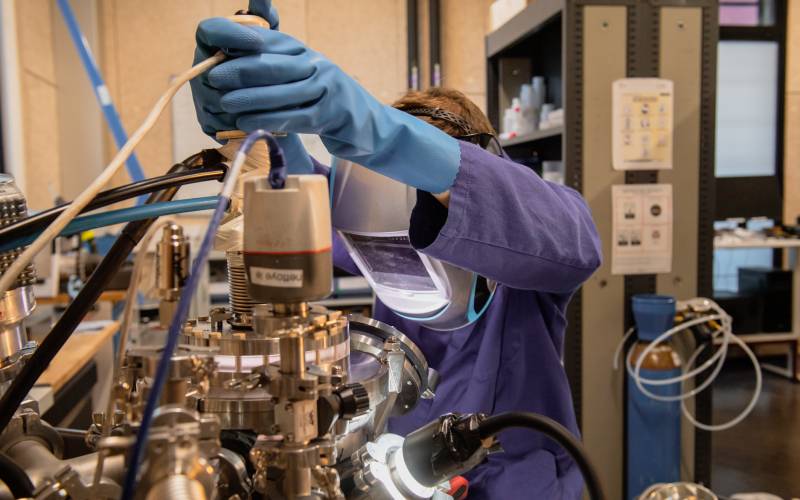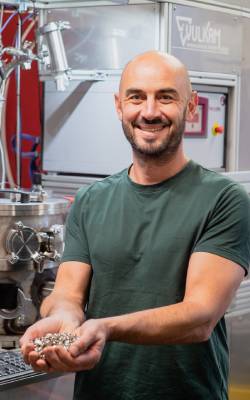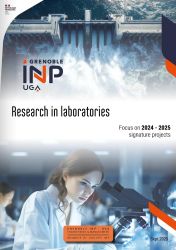Vulkam raises €34 million for its production plant
Seven years after its creation, Vulkam has just completed a second record-breaking round of fund-raising to the tune of €34 million, which the start-up developed by SIMaP will use to finance the construction and commissioning of its production plant in Le Versoud (Isère, France), starting in 2025.




 Amorphous metal alloys have three times the strength of conventional metals and double the flexibility, but are lighter. These qualities enable them to meet the challenges facing manufacturers and open up new possibilities for their small parts. “We're focusing on miniaturisation, which is more cost-effective", states Sébastien Gravier, founder and CEO of Vulkam. “Our products can be used to miniaturise medical devices or extend the life of mechanical systems. We are already targeting the watchmaking, medical and aerospace industries, which require high-volume, high-value-added metal parts But over the next five years, we hope to innovate with new material compositions for other market segments, such as transport, sports and leisure.”
Amorphous metal alloys have three times the strength of conventional metals and double the flexibility, but are lighter. These qualities enable them to meet the challenges facing manufacturers and open up new possibilities for their small parts. “We're focusing on miniaturisation, which is more cost-effective", states Sébastien Gravier, founder and CEO of Vulkam. “Our products can be used to miniaturise medical devices or extend the life of mechanical systems. We are already targeting the watchmaking, medical and aerospace industries, which require high-volume, high-value-added metal parts But over the next five years, we hope to innovate with new material compositions for other market segments, such as transport, sports and leisure.”